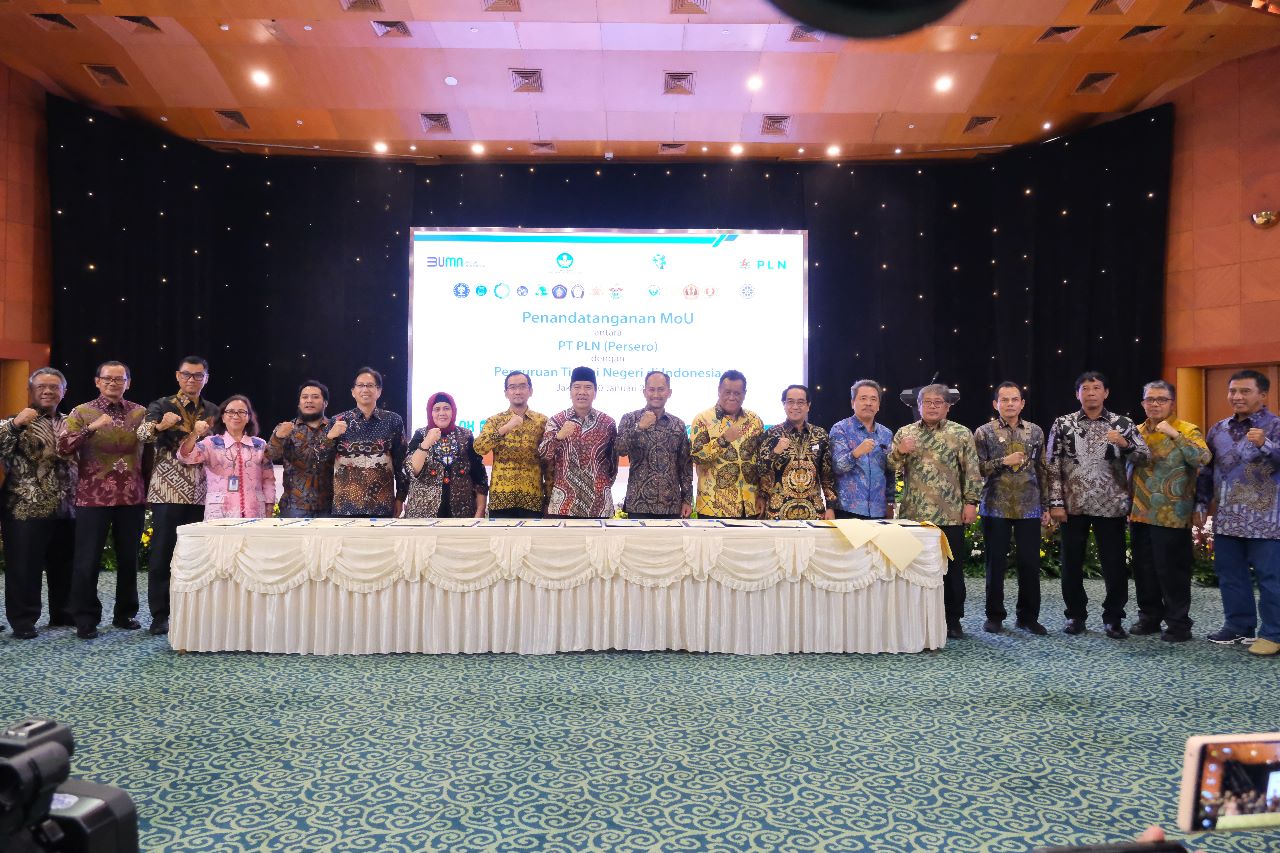To support the development of environmentally friendly energy, UI along with 15 other universities collaborated with PT Perusahaan Listrik Negara (PLN), which was marked by the signing of a Memorandum of Understanding regarding education, research, community service, downstream innovation, demonstrator technology, and empowering human resources. (HR). This collaboration is expected to be able to identify areas of expertise that need special attention, especially in developing the capacity and capabilities of human resources. UI Chancellor along with rectors or representatives from 15 other universities signed a Memorandum of Understanding with the Main Director of PT PLN (Persero), Darmawan Prasodjo, on Tuesday (10/1), at the 3rd Floor Auditorium, PT PLN (Persero) Head Office.
As part of this collaboration with the State Electricity Company (PLN), the Faculty of Engineering, Universitas Indonesia (FTUI) has established educational cooperation for the development of PLN human resources. This cooperation, which targets PLN employees, is carried out through a formal Master of Engineering education program using online, offline, and hybrid methods. The main thing in this educational collaboration focuses on two scopes: the registration and acceptance of prospective participants in the Master of Engineering education program and the holding of lectures for the Master of Engineering education program.
“Regarding the registration and acceptance of prospective participants in the Master of Engineering education program, the PLN conducts an internal selection of prospective participants which will be submitted to FTUI, for registration and acceptance of prospective participants. Then, the stages of registration and acceptance of prospective participants at FTUI are carried out by the mechanism After that, the FTUI announces the test results based on the applicable mechanism. Regarding education costs, all of them are borne by the PLN, including costs for accompanying the SIMAK UI exam, matriculation fees, entrance fees/admission fees, education operational costs, management fees, mentoring, and monitoring, research workshop costs, paper writing workshop fees, thesis trial fees, and graduation fees,” said Dr.-Ing. Ir. Dalhar Susanto, Cooperation Manager, Ventura, and FTUI Alumni.
“This special cooperation class is a request from PLN regarding transitional energy. PLN agreed to 6 collaboration classes with 20 students each. The several study programs established in this collaboration are Masters in Energy Systems Engineering, Master in Electrical Engineering: Specialization in Electric Power and Intelligent Systems, Master in Electrical Engineering: Specialization in Energy and Electricity Management, Master in Chemical Engineering: Specialization in Energy and Sustainable Process Engineering, and Master of Mechanical Engineering: Specialization in Conservation and Energy Conservation. The amount of cooperation between PLN and FTUI ranges from 16 billion until graduation,” explained Prof. Dr. Ir. Widodo Wahyu Purwanto, DEA., Head of the FTUI Interdisciplinary Graduate Program who oversees the FTUI Energy Systems Engineering Interdisciplinary Masters program.
Dean of FTUI, Prof. Dr. Hery Hermansyah, S.T., M.Eng., IPU., conveyed his warm welcome regarding the signing of this cooperation class with PLN. “Regarding this collaboration because of its nature, it is a need from the industry related to the development of human resources who can answer challenges related to the energy transition, which was previously based on fossil fuels, now based on renewable energy. PLN must prepare for this because of the challenges of major changes that exist, PLN prepares superior human resources by developing the human resources of its employees through their participation in the FTUI Master of Engineering program,” he said.
This cooperation step between PLN and FTUI is also a form of implementing the 7th point of the Sustainable Development Goals (SDGs), namely clean and affordable energy, to realize development for the safety of the earth.
***
Bureau of Public Communications
Faculty of Engineering, Universitas Indonesia

